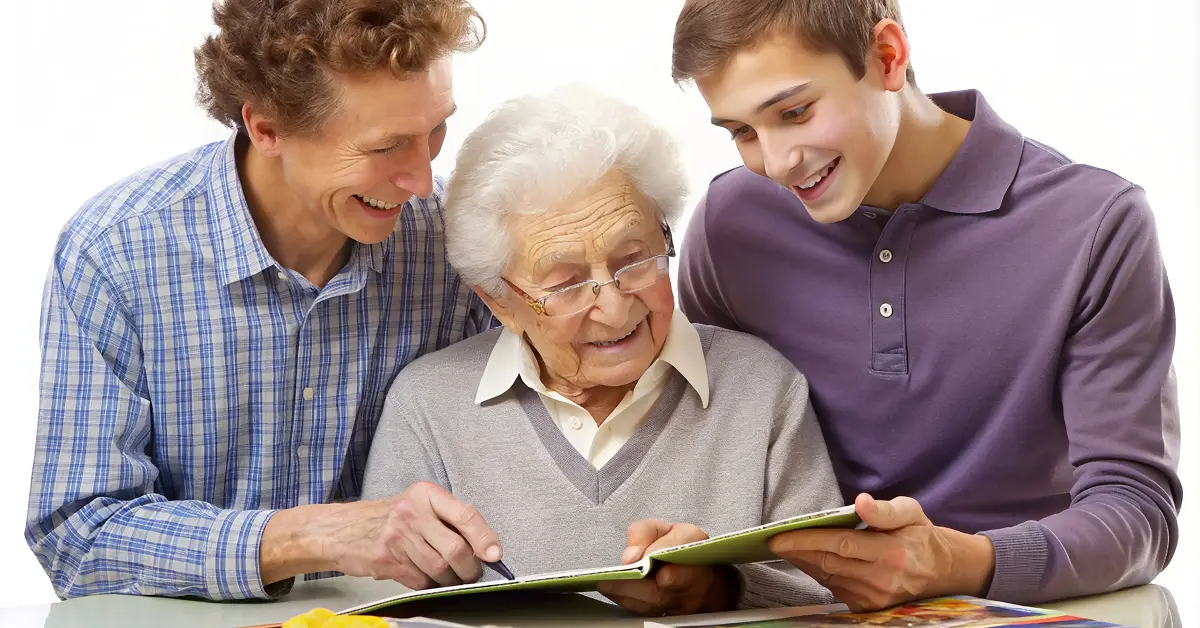As our parents grow older, their needs evolve. While many seniors strive for independence, ageing can bring physical, emotional, and cognitive challenges that make daily life more difficult. As adult children, it’s crucial to recognise the early signs that indicate your Parent Caregiver may need daily support—whether from family members, professional caregivers, or assisted living services.
In India, where multi-generational households are common, it's natural to want to care for our parents ourselves. However, work commitments, nuclear family setups, or geographical distances can sometimes make that difficult. Understanding when to step in with structured support can be the key to ensuring their health, happiness, and dignity.
Decline in Personal Hygiene
One of the earliest and most visible signs is a noticeable drop in personal hygiene. If your mother, who was once meticulous about her appearance, now wears soiled clothes or skips baths, it could be more than forgetfulness. Likewise, untrimmed nails, bad breath, or body odour may signal that grooming has become too physically taxing or confusing.
Why it matters: Poor hygiene increases the risk of infections, skin problems, and loss of self-esteem.
What to do: A daily caregiver or part-time home aide can help maintain hygiene without compromising your parent’s dignity.
Unexplained Weight Loss or Poor Nutrition
Are your parents skipping meals or eating only instant foods? Unexplained weight loss, expired groceries in the kitchen, or repeated takeaways might be signs they’re struggling with meal prep or forgetting to eat.
Why it matters: Malnutrition is common among elderly people and can worsen existing medical conditions.
What to do: Daily help with cooking or meal delivery services tailored for seniors can make a big difference. In India, services like Annam Meals or specialised dabbawalas in metro cities are gaining popularity for elderly care.
Missed Medications and Doctor Appointments

Do you find unused tablets in the strip or find out they missed a scheduled doctor visit? Forgetting medications or check-ups can be dangerous, especially if they have diabetes, hypertension, or cardiac issues.
Why it matters: Skipping medications can lead to serious health complications or hospitalisation.
What to do: A caregiver can help with medication reminders, refill tracking, and even accompany them to doctor visits.
Frequent Falls or Bruises
If you notice bruises they can't explain or if they talk about slipping in the bathroom or losing balance, it's a serious red flag. Ageing reduces muscle strength and balance, making seniors more prone to falls.
Why it matters: Falls are a major cause of injury-related deaths in elderly Indians.
What to do: Installing grab bars, using anti-slip mats, and having a support person around can prevent dangerous falls. Some families also consider hiring a trained physiotherapist for home exercises.
Cognitive Changes or Memory Issues
Are your parents forgetting names, repeating stories, or misplacing items? While occasional forgetfulness is normal, consistent memory loss or confusion could point to dementia or other cognitive issues.
Why it matters: Seniors with early signs of Alzheimer’s or dementia need supervised care to avoid wandering, getting lost, or neglecting basic needs.
What to do: Early diagnosis is key. Also, hiring caregivers trained in dementia care ensures safety and engagement through activities and routines.
Neglected Household Chores
A once-spotless house now gathering dust? Stacked-up laundry, unpaid bills, leaking taps, or pests in the kitchen can all signal difficulty in managing household chores.
Why it matters: An unhygienic or disorganised home can be both a health hazard and a source of anxiety for seniors.
What to do: Regular housekeeping help or live-in support can ensure a clean, functional home environment.
Isolation and Social Withdrawal
Have your parents stopped going for their morning walk, temple visits, or kitty parties? Do they avoid phone calls or video chats? Isolation can be both a cause and effect of ageing-related depression.
Why it matters: Loneliness can accelerate physical and mental decline in seniors.
What to do: Daily support can include encouraging social interaction, helping them video call family, or arranging group sessions for seniors in the neighbourhood.
Mood Swings or Increased Irritability
Do they seem more angry, confused, or withdrawn? Sudden mood swings, tearfulness, or apathy are signs that they may be struggling emotionally.
Why it matters: Mental health in seniors is often overlooked in India. Depression and anxiety can go undiagnosed and untreated.
What to do: Having someone around to talk to, observe behavioural patterns, and even help them access a therapist can make all the difference.
Medical Conditions That Require Monitoring
Chronic illnesses like Parkinson’s, arthritis, or COPD require careful monitoring. If they’re living alone or relying solely on memory and notes, it may not be enough.
Why it matters: A minor oversight can quickly escalate into a medical emergency.
What to do: Hire a home nurse or health attendant who can monitor vitals, administer injections, or manage oxygen therapy and other equipment.
Inability to Manage Finances
Are they confused about online banking or becoming overly generous with strangers? If bills go unpaid or there are suspicious transactions, they may need help managing finances.
Why it matters: Seniors are increasingly becoming targets of scams and financial abuse.
What to do: Consider power of attorney options, set up auto-payments, or have a trusted caregiver monitor for red flags.
How to Start the Conversation
Talking to your parents about their declining independence can be emotionally difficult. Here’s how to do it respectfully:
- Choose a calm, private time to talk.
- Focus on specific observations, not judgments.
- Involve them in decision-making.
- Offer options rather than ultimatums.
- Reassure them that it’s about improving quality of life.
Final Thoughts
Recognising that your ageing parents need daily support is not a sign of failure—it’s an act of love. In a country like India, where the elderly population is expected to reach over 194 million by 2031, proactive planning is essential.
Whether it’s hiring a part-time caregiver, arranging elder-friendly home modifications, or exploring senior care services in your city, early action ensures safety, comfort, and peace of mind for the entire family.
Need Help Finding a Trusted Caregiver in India?
Explore reputed platforms like Portea, Zorgers, or Anvayaa for elder care services tailored to Indian families. Choose caregivers who are trained, verified, and sensitive to your parents’ unique needs.
Contents
- Decline in Personal Hygiene
- Unexplained Weight Loss or Poor Nutrition
- Missed Medications and Doctor Appointments
- Frequent Falls or Bruises
- Cognitive Changes or Memory Issues
- Neglected Household Chores
- Isolation and Social Withdrawal
- Mood Swings or Increased Irritability
- Medical Conditions That Require Monitoring
- Inability to Manage Finances
- How to Start the Conversation
- Final Thoughts
Our 24*7 services
Latest Posts
- What Is Respite Care and Why Is It Important
- Affordable home care for senior citizens in India
- Caring for Seniors with Dementia or Alzheimer's at Home
- Senior Caregiving A Guide for Every Family
- How to Write a Caregiver Resume That Gets You Hired
- How Care After Hospital Discharge Speeds Up Recovery at Home
- How to Get Home Health Care for Seniors Through Medicare
- What Does a Senior Citizen Caregiver Really Do at Home
- How to Care for Elderly Parents with Alzheimer’s or Dementia
- How to Get 24-Hour Care for Seniors at Home


